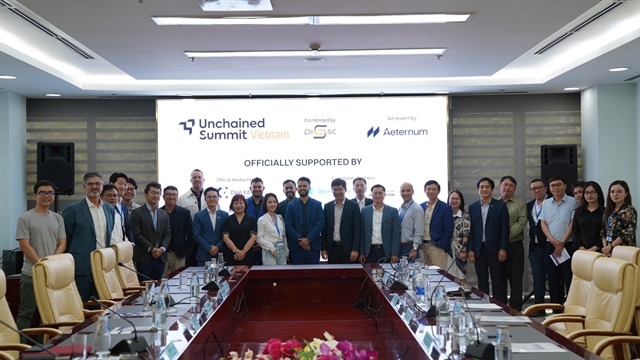 Politics & Law
Politics & Law

 |
| General Secretary of the Communist Party of Việt Nam Central Committee Tô Lâm (right) meets with Chinese Premier Li Qiang, who is also a member of the Standing Committee of the Political Bureau of the Communist Party of China Central Committee, in Pyongyang. — VNA/VNS Photo Quang Hải |
PYONGYANG — General Secretary of the Communist Party of Việt Nam (CPV) Central Committee Tô Lâm met with Chinese Premier Li Qiang, who is also a member of the Standing Committee of the Political Bureau of the Communist Party of China (CPC) Central Committee, in Pyongyang on Thursday.
The meeting took place on the sidelines of the ceremony marking the 80th founding anniversary of the Workers’ Party of Korea.
Both sides expressed their delight at the strong and positive development of relations between the two Parties and the two countries over the recent past as seen in the continuously strengthened political trust, frequent high-level meetings, and enhanced cooperation in security and national defence.
Besides, economic, trade, investment, and tourism partnerships have grown rapidly while strategic connectivity, particularly in railway infrastructure, has advanced. Locality-to-locality cooperation and people-to-people exchanges have become more dynamic, and coordination at multilateral forums has deepened.
Party General Secretary Lâm commended the significance and outcomes of the state visit to Việt Nam by General Secretary of the CPC Central Committee and President of China Xi Jinping in April, expressing his hope for the two sides to further deepen and substantively develop ties between the two Parties and countries.
He proposed that both sides continue to reinforce political trust to guide and expand cooperation across all fields, successfully organise the 17th meeting of the Việt Nam–China Steering Committee for Bilateral Cooperation, and promote the roles of the key pillars of diplomacy, national defence, and public security.
The CPV leader called for continued efforts to make breakthroughs in cooperation, thus turning commitments into concrete results and potential into practical benefits, particularly in expanding China’s import of Vietnamese goods, including agricultural and aquatic products; increasing electricity exports to Việt Nam; and highly prioritising the early completion of the three standard-gauge railway lines connecting the two countries. He also asked for boosting high-quality investment cooperation linked with technology transfer and human resources training, along with promoting science and technology collaboration into a new highlight of bilateral relations.
With the hope of fostering friendship, mutual understanding, and trust between the two peoples, the Vietnamese leader proposed that the two sides encourage social and mass organisations to increase exchanges, step up communications about the Việt Nam–China friendship and development achievements of each nation, and strengthening ties in education, particularly high-quality human resources training, and tourism.
He asked the two sides to properly handle sea-related issues in accordance with the common perceptions reached between the two countries’ top leaders as well as international law, including the 1982 United Nations Convention on the Law of the Sea (UNCLOS).
For his part, Li appreciated the warm and fraternal reception given to General Secretary and President Xi Jinping during his visit to Việt Nam in April.
Highly valuing Party General Secretary Lâm’s proposals for strengthening relations in the coming time, he affirmed that the Chinese Party and State attach great importance to the countries' comprehensive strategic cooperative partnership and the building of a community with a shared future that carries strategic significance with Việt Nam, and always consider this a priority in China's neighbourhood diplomacy.
The Premier called on both sides to accelerate the productive implementation of the high-level agreements and shared perceptions, enhance political trust, improve the quality and effectiveness of cooperation in all fields, consolidate public support, and properly control and address sea-related differences, thereby promoting the substantive and sustainable development of relations between the two Parties and the two countries. — VNA/VNS




